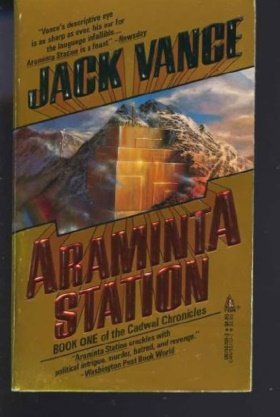Elad sat very still for a moment. ‘So it was you feeding me the documents. You are the source.’
Reka nodded. ‘Yes. It was me. I gave you the first document. I wanted to see what you did with it, if you would use it to dig deeper or go public as soon as you got it.’ Reka smiled. ‘You passed the test. You kept quiet, carried on working. So I sent you the next document. Then I realised that you were in danger, so I brought you here. Not just from Uncle Karoly. There’s a rogue guy at your embassy, Shlomo. He was very unhappy about your work. He was about to warn you off, in very strong terms. The last thing he wanted was a big Holocaust revelation before Alon Farkas’s visit and the trade deal with Nationwide. Especially anything to do with Nationwide.’
Elad’s eyes widened. ‘Shlomo? I met him a couple of times. He was always so friendly, so interested in what I was doing. He asked a lot of questions.’
Reka smiled and nodded. ‘Now you know why. The more you found out, the more worried he got. Then he got in touch with some people in Serbia, and we got very alarmed. That’s when I brought you here. Now, over to you, Elad. Talk us through the documents.’
Elad looked down at the first sheet of paper. ‘This is a copy of the first document you sent me. It’s a legal agreement between Tamas Bardossy, Reka’s late grandfather, and someone called Miklos Berger. Who was Miklos Berger? Well, he was the son of a family of Budapest Jewish industrialists. The family firm was called Berger Holdings. Miklos was the chairman of the board and the CEO. His father, Samuel, who founded the company, had been sick for a while and died a few weeks before the Nazis invaded. His mother had died in childbirth. Miklos was the only child. He knew that the Nazis would probably invade Hungary and take the business, so he arranged with a trusted business partner, Tamas Bardossy, a way to safeguard the family holdings, which were extensive. The Bergers owned a steel mill on Csepel Island, a bicycle manufacturing plant and several other companies.’
Elad looked around the room. He had everyone’s attention. He caught Eva neni’s eye. She nodded and smiled at him encouragingly. Elad drank some water then carried on talking. ‘So now to the details of the first document. It is dated 20 March 1944 – a day after the Germans invaded. There are two parts. In the first Miklos signed over the company to Tamas Bardossy in exchange for 50,000 Swiss francs. Both men had bank accounts in Zurich, so the transfer was simple to arrange. The agreement was confidential, of course, but could be produced if and when the Nazis tried to appropriate Berger Holdings. The key point was that this document showed there was no longer any Jewish ownership of the company. There is another paragraph about three paintings, a Picasso, a Manet and a Monet, which the Bergers also transferred to Tamas Bardossy for temporary safekeeping. And a house, a beautiful villa in the Buda hills.’
Elad paused. ‘In Obuda, to be precise.’
Elad looked at Reka. She closed her eyes for a moment, swallowed, then met his gaze. She nodded, a quick, tight movement.
Everyone at the table sat very still. The only sound was the faint hum of the fridge and the soft tick of an electric clock in the kitchen.
Elad said, ‘This villa. The Bergers lived here.’
Nobody spoke.
Eva neni wiped her eyes, then asked, ‘And the second document?’
Elad picked up the second piece of paper. ‘This one was also notarised by the lawyer, signed by both men, witnessed by their wives, Maria Bardossy and Rahel Berger. It says that the sales agreement wasn’t genuine and was invalid. It was merely a device to cloak the ownership of Berger Holdings until the end of the war, at which point Miklos Berger, or any surviving family member, would return the 50,000 Swiss Francs to Tamas Bardossy. Bardossy would then give back the factories, the house, the paintings, the house and everything else to the Berger family.’
‘But that’s not what happened, is it?’ asked Eniko.
Elad shook his head. ‘No, it’s not. Tamas Bardossy did not even pay the 50,000 francs.’
Reka said, ‘But the Bardossys still got everything the Bergers owned.’
Eniko asked, ‘Did the Nazis try to take over Berger Holdings?’
Elad nodded. ‘Absolutely. A squad of SS officers turned up at the office to arrest Miklos Berger the day after the invasion. But they found Tamas Bardossy sitting in Miklos’s office. He produced the ‘Sales Agreement’ – Elad made quote marks in the air – ‘that showed the Bergers’ firm had been sold to the Bardossy family and had no Jewish ownership. The SS officer, one Karl Buchner, left.’
‘Why didn’t the Germans take it all anyway?’ asked Eniko. ‘Why did they care about a legal agreement?’
‘It’s a good question,’ said Elad. ‘In the first few months of the occupation, at least until October 1944 when the Arrow Cross took over, the Germans wanted to keep a kind of fiction that Hungary retained some sovereignty. They needed Hungary as an ally. Admiral Horthy stayed in place, there was a Hungarian government. Berger Holdings had already been converted to military use – it was making casings for mines and shells. It was more important for the Germans to show that there was still some rule of law and Hungary was a partner, rather than a fully occupied country like Poland. Hungary was a very useful ally at a time when it was growing clear the Nazis were losing the war.’
Eniko asked, ‘What happened to Miklos and Rahel?’
‘They went into hiding but they were found the next day,’ said Elad. His hand reached for Eva neni’s. ‘They were sent to Auschwitz. They didn’t come back.’
Zsuzsa said, ‘This is the Miklos and Rahel Berger whose story is at the memorial on Liberty Square, isn’t it?’
Elad nodded. ‘It is.’
Zsuzsa asked, ‘Did you put it there?’
Elad said, ‘Yes.’
Eniko asked, ‘Did Miklos and Rahel have any children?’
Eva neni blinked away the tears and clasped Elad’s hand tightly. ‘Yes,’ she said. ‘They had a daughter.’ She paused. ‘Her name was Eva.’
The atmosphere, already tense and emotional, turned electric.
‘Her name still is Eva.’ She swallowed hard for a moment, took a drink of water before she spoke. ‘My name is Eva Hegyi now. But I was born Eva Berger. I grew up in this house, played in the garden. The day before the Germans arrived, before my parents went into hiding, I went to live with my aunt, Orsi. We knew that the Nazis had a VIP wanted list and my parents and I were on it, so they thought it was safer for me to move to Pest. We were in the heart of the ghetto. Orsi got me false papers. We survived, somehow, but Orsi didn’t want me to have a Jewish-sounding name after the war, so she changed it. That is my real name. Eva Berger. Berger in German, Hegyi in Hungarian, they both mean “of the hill”.’
Elad said, ‘Berger, Hegyi, and in Hebrew, Harrari.’
Eva neni stared out of the window for a moment. ‘Now I’m back on the hill.’ She turned to Reka, wiped her eyes again. ‘And now I know what happened, how we lost everything. Thank you for bringing me here, Reka. For bringing me back home. I wanted to come for such a long time. But I couldn’t have done this on my own.’
Reka swallowed, also wiped her eyes. ‘I’m so sorry this has taken so long. I had a researcher check the records for Eva Berger but we could not find anything after the war. Those were chaotic times. I thought perhaps you had died in the ghetto or emigrated. Then I read recently about how many Jewish families changed their names, Hungarianised them, after the war, and I wondered if you did. This time the researcher found your records. So then I needed to find a historian to dig out the whole story. Now I have something for you, Eva neni. I’ve been waiting a long time to give it to you.’
Reka walked over to a cupboard in the kitchen and took out a small metal box. The blue paint was faded and rusty but she had cleaned it, even oiled the hinge so it opened easily.
She handed it to Eva neni. ‘This is yours. Everything inside once belonged to your parents. I found it many years ago, half buried in the garden. I used to play with it when I was a kid. I left it there for years, then after my parents died I brought it into the house.’
Eva neni stared at the metal box for a long moment. ‘This is from my parents? From seventy years ago?’
Reka said, ‘Yes. Would you like us to leave, Eva neni? We all understand that this is a very emotional moment for you.’
Eva neni shook her head, touched the box with a sense of wonder, her hand resting on the metal. ‘No, please stay.’ She looked around the room. ‘You are all part of the story now. Thank you for being with me. I just wish Balthazar was here as well.’
‘We all do,’ said Eniko.
The table fell silent as Eva neni opened the box, her face suddenly childlike and full of wonder. She took out the white silk garment with the blue trim, held it to her face and inhaled. ‘My father’s tallis. His prayer shawl,’ she said, carefully folding the garment and placing it on the table.
Next came the smaller box with all the rings. She took them out one by one, looked on the inside of the gold bands, swallowed. For a moment she could not speak. ‘I remember these. My parents’ wedding rings, with the date of their wedding: 10 August 1933. And my mum’s ring and my father’s.’
Eva neni looked at Reka, her face full of amazement, joy and sadness all at once. ‘I don’t know what to say. I never thought I would see these again.’ She placed the rings next to the tallis, then took out the exercise book. She opened it, took in the heavy, blocky script. ‘It’s in Hebrew. I can’t read Hebrew.’
She handed the book to Elad. He opened it to the first page, quickly read it, flipped through the other pages. ‘It’s a kind of diary. Thoughts and impressions. Miklos wrote it. I’ll translate it for you.’
She reached for the book again, and Elad handed it back. She leafed through the pages. ‘He wrote this? By hand? I don’t have anything in his writing.’
Eva neni reached inside the box again, almost overwhelmed. Resting at the bottom was a small photograph of a young girl with curly blond hair in a dress with a row of buttons down the middle.
She took out the photograph, her eyes wide. ‘Oh. That’s me.’
Eva neni turned the picture over then read the inscription out loud: ‘Darling Evike, we have to go away for a little while, but we love you always and forever. A million kisses, Mummy and Daddy.’
She sat very still for a moment and put the photograph down. Then the tears flowed, around the table.
FORTY
Mariahegyi Way, 11.40 p.m.























